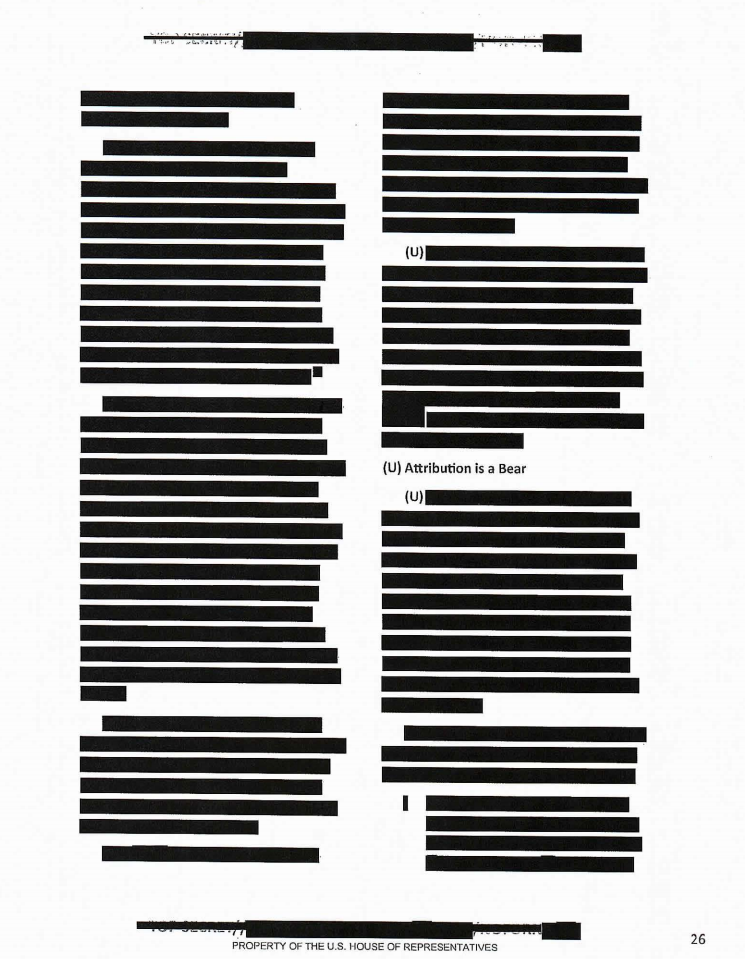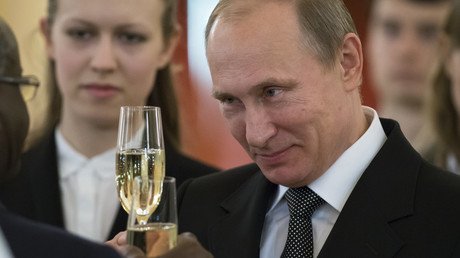Two tweets to break democracy? Incredible claim in House report on ‘Russian meddling’

Though the House Intelligence Committee report exonerated President Donald Trump of ‘collusion’ with Russia, it still accused Moscow, and RT specifically, of meddling in the 2016 US presidential election.
The report released on Friday says the committee “found no evidence that the Trump campaign colluded, coordinated, or conspired with the Russian government,” but it accepted the US intelligence community’s claims from the January 2017 report that said Russia used ‘active measures’ to meddle in the elections.
How did that happen? That’s classified. Much of Chapter two, suggestively titled ‘Russia attacks the United States,’ was entirely redacted at the request of the US intelligence community, according to Rep. Mike Conaway (R-Texas). The few tidbits that the public was allowed to see defined spear phishing and credential harvesting and admitted that “attribution is a bear.”

The report then goes full tinfoil hat, claiming that WikiLeaks is a Russian intelligence outlet and accusing RT of serving some dark agenda of the Kremlin. According to the US spy community, RT produces content which appeals to “skeptics of both the mainstream media and the establishment.” Points for honesty on that, Langley, that is literally what “Question More” means.
During the election campaign, the report says (see page 32), RT engaged in “wide-ranging” attacks on Hillary Clinton, “including the insinuation that the Clinton family were criminals,” and “used advertising to promote material leaked by Russian intelligence.” To illustrate this point, the committee offered screenshots of two promoted RT tweets.
You read right. Two tweets. Which, if the screenshots can be trusted, got but a handful of retweets and even fewer replies.
“We spent $30 for two tweets, and those two tweets destroyed their democracy,” RT’s editor-in-chief Margarita Simonyan quipped on Twitter, summarizing the report. “And we criticized both Hillary and Trump, but Hillary more often. And that’s offensive.”
Understandable bewilderment aside, let’s look at the two stories in question. The first one was a five-point listicle about affairs, such as Whitewater, Travelgate, Benghazi and Hillary’s emails - all of which have been reported on by the mainstream US media. In each instance, the Clintons were not charged. Did the headline read a bit like Fox News? Sure. Was it also true? Yes.
The second promoted tweet was on a Sunday before the election, reporting about the 33rd batch of emails from Clinton campaign chair John Podesta’s personal account, which were being released by WikiLeaks. And no, RT did not get advance warning on any of the drops, despite some serious tinfoil-ruffling by various US media and Clinton campaign officials. We just watched out for them very hard, because that’s journalism.
That particular batch of emails contained no bombshells, though. One message accused Chelsea Clinton of using her parents’ foundation funds for her wedding. Another included Hillary’s aide Philippe Reines urging staff not to joke about the private server emails, “because email retention = Benghazi.”
Then there was a 2008 message addressed to Podesta, David Brock of Media Matters and Tom Matzzie of MoveOn.org, saying that Arianna Huffington was “enthusiastic” about Progressive Media USA, but that it would be more useful if HuffPo would “echo our message without any perceived conflicts.”
Yet Congress would have you believe that RT promoting these two stories to the tune of $30 (and getting very little for the money) somehow broke American democracy.
To get away from that sort of heat, ahead of facing the committee in October 2017, Twitter announced that it would “off-board”all RT advertising. The company neglected to mention it was Twitter that pitched an election-related advertising campaign to RT, or that RT declined the offer.
Oops.
Nebojsa Malic for RT
















